BILL WITHERS / “Harlem”
I avoid the whole Hot 9X.X radio thing like the plague (the ‘X’s are so you can fill in your own station number; after all, that seems to be the only difference from one city to the next), but whenever I’m unlucky enough to have it foisted on me, the first thing I notice is how static everything sounds. Just about every modern R&B song (if you want to call this stuff R&B) sounds like it was laid down and mixed in the same pristine 128-track state-of-the-art all-digital recording studio that every other modern R&B song was done in. I imagine there’s one cavernous building somewhere in either New York or L.A. (or, fuck it, why not in both locations simultaneously…welcome to the future, right?) where fresh-faced, bright-eyed little studio gangsters and wanna-be divas mill around nervously, chewing gum, checking their makeup and Blackberrying their thoughts ("I soooo nervous right now!!!") to their own My Space pages. One mega-conglomerate has bought out every recording studio in the continental United States, and now, if you want to lay down a vocal track anywhere other than in your own bedroom, you have to get in line with everyone else. Oh, and there’s an age limit – you have to be younger than 25. And you can’t be ugly. Or fat. Or smelly. Or dressed like a bum. (Unless it’s the whole “dressing badly to imitate people who actually can’t afford to dress any better” thing that’s going around.)
Anyway, whatever it is that happens once the young ‘uns actually get inside the vocal booth renders their voices virtually identical. Despite some small measure of individuality that they must have brought with them to their respective recording sessions, nearly all of the boys and girls end up with the same prosthetic tone: impossibly big, glaringly flawless and annoying as hell. And speaking of annoying: I don’t know what today’s crop of producers is doing with the vocal decay, but whatever it is, I first noticed it years ago with the ascendance of Brandy. There’s some weird treble-y thing that happens. Actually, it’s always there, but it’s particularly noticeable as the singer’s held note fades. There’s some weird almost-subsonic effect that takes over their tone until it almost sounds like glass on glass. I’m surprised people who listen to Hot 9X.X-style music are able to keep their indoor pets indoors. For dogs and cats, it must be literally painful...as opposed to just emotionally and psychologically painful, as it is for me.
I didn’t sit down at the keyboard today just to rant though. No, I’m gonna do better than that. Instead, of whining and bitching anymore than I already have, I’m going to throw together a mix of Seventies soul: the type of music that is the antithesis of today’s so pristine, so perfect, so flawless and so soulless “R&B.” While you listen to these songs – many of which you’ll already know I love – I want you to listen for texture. By that, I mean the wide variety of sounds and instruments and vocal qualities. These songs are anything but static. You’ll hear soft sounds, loud songs, rough sounds, smooth sounds, sudden sounds, lingering sounds – all sorts of shit and often all in the same song.
And not only that, these songs are all actually about something. Imagine that, right? These young (and they were all young at the time) singer-songwriters were putting it down about things that actually mattered outside of their own little clique or posse or hood. And not necessarily in a preachy or overbearing or boring way either. In one way or another, every one of these tunes is about life in the big city ghettos, yet each retains the marked individuality of its creator. Each is a hand-crafted and unique work of art. And most of all, all of these songs have that energy and drive and funkiness and spirit that make you want to get up and shake your ass or sing out loud or beat on your desk like a it’s a drum, all while you’re sitting there in your stupid little cubicle. ... So with no further ado, take it away, Bill.
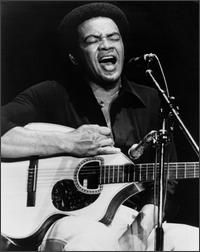
Exhibit 1: Bill Withers - “Harlem.” From Just As I Am (1971, Sussex)
Pounding drums, soaring strings and a voice that sounds like an old worn-out blanket. Choice quote: “Lawd, honey, don’t give your money to that lying cheating man.” Best moment: The drum break at 2:24. It’s not even artistic – just ‘bam-bam-bam-bam, crash!’ Yeah!
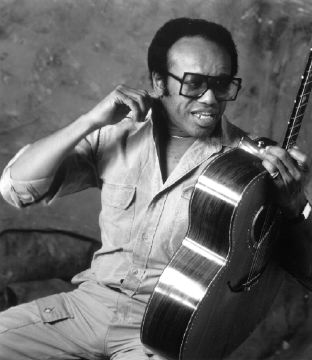
Exhibit 2: Bobby Womack – “Across 110th Street.” From the Soundtrack to Across 110th Street. (1972, United Artists) (Available on The Very Best Of Bobby Womack.)
Delicate cymbal work, throbbing electric bass and a voice that sounds like that same blanket but after you accidentally let your dog chew on it for a while. Choice quote: “Across 110th St., pimps trying to catch a woman that’s sweet / Across 110th St., pushers won’t let the junkie go free.” Best moment: When Bobby holds that last ‘all’ in the last chorus: “You can find it aaaaa-OHOOHHH-AAAAA-AAAA-AAALLLLL!!!”
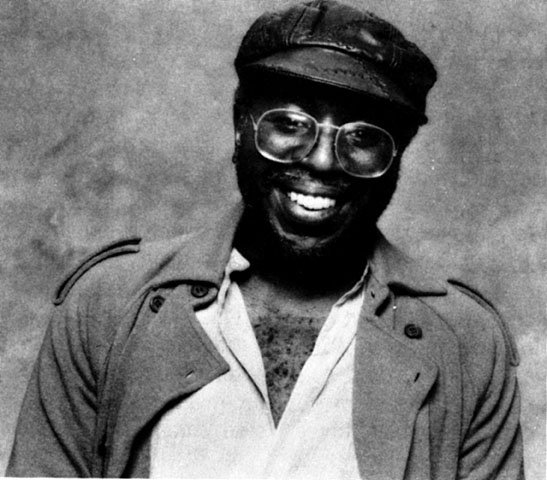
Exhibit 3: Curtis Mayfield – “Freddie’s Dead.” From the Soundtrack to Superfly. (1972, Curtom)
Pure wistful grace. Between the strings (more strings!), Curtis’ falsetto and the melancholy nature of the lyrics, this weighty and serious song somehow threatens to simply wisp away. Choice quote: “We’re all built up with progress, but sometimes, I must confess / We can deal with rockets and dreams, but reality, what does it mean?“ Best moment: The conga drummer (who you might not have even noticed was there before) getting funky with it as Curtis heads to the fadeout.
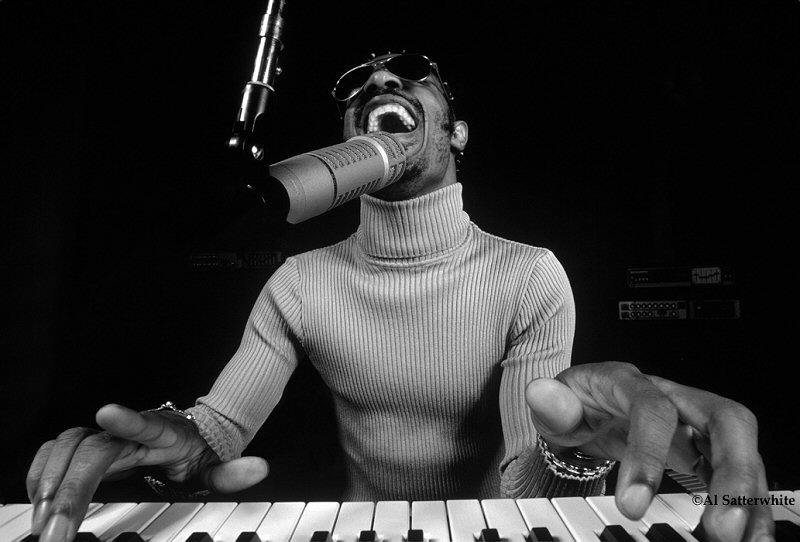
©Al Satterwhite [www.alsatterwhite.com]
Exhibit 4: Stevie Wonder – “Living For The City.” From Innervisions. (1973, Motown)
By ’73, Stevie was so confident in his musical ability that he stopped the best song on his best album to include a vignette worthy of full-length movie treatment. In the space of exactly one minute, our unnamed hero goes from a fresh-faced country kid full of optimism and wonder to a hardened street dweller with nothing left at all, not even hope. Choice quote: “I hope you see inside my voice of sorrow / And that motivates you to make a better tomorrow.” Best moment: The entire mid-song break beginning with our hero arriving in Manhattan (“Wow, New York! Just like I pictured it”) and ending with the redneck prison guard (“Get in that cell, nigger!”). It’s so good that both the opening and closing quote have been re-used in other songs.
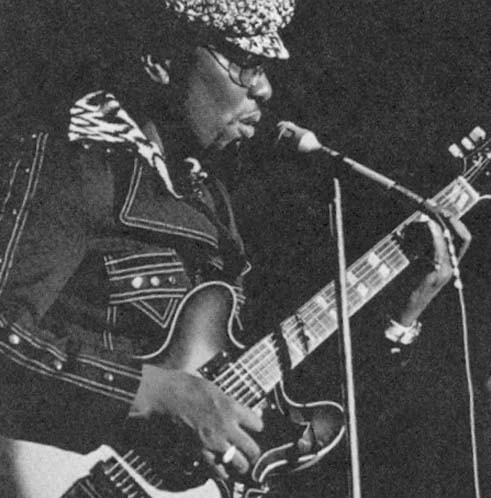
Exhibit 5: Willie Hutch – “Ain’t That (Mellow Mellow).” From the Soundtrack to Foxy Brown. (1974, Motown) (Also available on Try It, You’ll Like It: The Best Of Willie Hutch.)
It’s too beautiful a day outside to leave y’all on a downer. So check out the crashing drums, the lovely ‘Ooh ooh!’s and the relentless optimism of Willie’s ghetto fantasy. (You just know my man was sweating his ass off in a crappy apartment when he came up with all of this ‘easy street’ mess.) Choice quote: “I got a little money to buy the things I need for me and my lady / Now ain’t that mellow?” Best moment: Duumm-duumm-DUUUMMM!!!!
—Mtume ya Salaam
Harlem!
Ok, Mtume, you’re asking for it now!
I think there is a healthy whiff of hypocrisy in the hip-hop glorification of the seventies Soul sound, not because the cats don't really appreciate the seventies music, but rather because if they want the funk they could get it. Am I the only one who wonders why so many rap records have the fake needle on the vinyl sound added to the CD? In fact, the scratchy vinyl sound was a by-product of playing the records over and over, nobody actually put that sound on their records. So why add it on to a modern recording? Can somebody tell me why that's so popular?
There’s nothing stopping producers from achieving that original seventies Soul sound. Really. Mtume, you opined that today’s producers must be doing something that produces the sterile sound that is the antithesis of seventies Soul. I believe you’ve got it backwards. It’s not what they’re doing, it’s what they’re not doing.
For one thing, in most cases they are not recording live with musicians all playing at the same time. Interaction between the creators of the music has been almost completely eliminated. People don’t play much of modern music, producers use computers to literally “make” (rather than play) the music.
One way to put it is: modern music is machine constructed so there’s no way it’s going to sound like it was collectively created on the spot.
On the other hand, machine produced music has massive audio impact due to compression and other modern engineering techniques including exact placement, sampling, and sophisticated editing accompanied by vocal effects (reverbs, delays, pitch modulations, etc. etc.). A person and a computer can literally build a wall of sound that seventeen hundred musicians could not match.
I am not arguing for one technique over another—both have their strengths. What I’m saying however is that when you want an organic sound you can’t manufacturer it, you have to literally grow it.
All of that is really an aside. What I’m really going to do is drop the big joker behind them four aces you was holding, Mtume: “Harlem/Cold Baloney.”
(In fact, I’m going to prempt Mtume’s selection of the studio version and substitute this live version.)
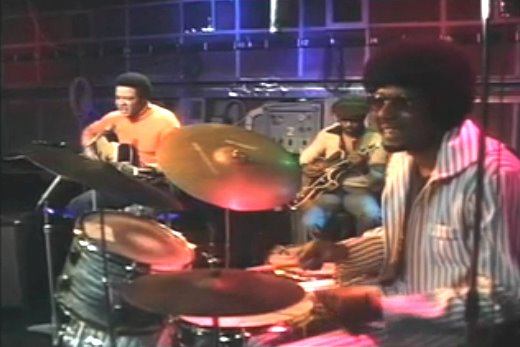
This is a thirteen-minute cut from Bill Withers Live At Carnegie Hall. If you don’t know this album, stop right now, click on the red title and order it. That’s an order! Otherwise, you are not even prepared to understand the discussion.
Bill Withers was never a young musician. He was a grown ass man when he broke into the music business. Bill Withers was never a dancer (a la James Brown or Michael Jackson), never known as a funk master, was in fact known to show up with a stool, a guitar, and two or three backup musicians, sit down and do his thing. Bill Withers is dead out of the country blues tradition even though he was writing modern music. He was a true troubadour singing about daily life. But he also had the ability to galvanize an audience in a mass of shouting responders.
Here’s the line-up of Bill’s band: Bernorce Blackman – guitar; Melvin Dunlap – bass; James Gadson – drums; Ms. Bobbye Hall – percussion; Ray Jackson – piano; Bill Withers – acoustic guitar & vocals. “Harlem / Cold Baloney” is the finale. This was a magical concert captured on tape.
The groove is so strong that even though the audience is often clapping off the beat (especially in the beginning), it doesn’t matter. The band locks into the groove and before you know it so does everyone else in the audience (and everyone who listens to the recording).
I don’t need to describe it, except to point out even the mistakes don’t mar the potency and perfection of this groove—check out that Bill counts off a slightly different tempo from the pianist’s opening vamp, so Ray Jackson simply stops and then follows the beat established by Bill stomping his foot.
As Mtume pointed out, listen to the lyrics, they are incendiary. The “Cold Baloney” portion is a true masterpiece of portraiture as Bill describes the plight of a domestic worker and her child. At about the five and a half minute mark, Bill says we “want to say goodnight” but he has over eight more minutes to go. The audience clapping verges on cacophony because everybody can’t seem to find the beat. So Bill pulls back and gives everybody a chance to catch the groove.
Bill than proceeds to go into the old blues lyric “Shake ‘em on down.” The line must be at least fifty some years old. I’m familiar with an early version by Furry Lewis. This is some joint juke shit. By the ten minute mark the audience is a shouting chorus fully locked into the groove. They clap when Bill leaves the stage and the announcer closes the program, except the band keeps playing and Bill returns and before you know it… damn, I said I wasn’t going to do what I just did.
This is the kind of shit you can’t manufacture. This is a textbook example of funking it up!
—Kalamu ya Salaam
I didn't say anything about hip-hop
This is kind of funny, Baba. You're agreeing with a point I didn't make. I didn't say anything about hip-hop. I was making a point about today's R&B. Just to make sure everyone's on the same page, that's the records with singing on them. I suppose nowadays people consider anything that young people do to be hip-hop, but if you ain't rapping over hard beats, it ain't hip-hop. You can call it whatever you want, but don't bring hip-hop into it.
Plus, my complaint has nothing to do with computers or how many people were in the recording studio or whatever. Dig it: some of Stevie's best and funkiest stuff was Stevie accompanied by Stevie, in conjuction with Stevie and with a guest appearance by, you guessed it, Stevie. And then Stevie mixed it down and probably sat there "looking" over the engineer's shoulder to make sure ol' boy didn't mess it up. Likewise, we've both heard countless recordings played by "real" musicians playing together in the same recording space which nevertheless comes out sounding so clean and perfect you could use it for Saran wrap. So it ain't who's playing in the studio.
To me, what is (or isn't) going on in those recording studios is passion, honesty, realness, priorities - and most of all - money. It's got nothing to do with genres of music. Once any genre of music gets commercialized enough, it turns to plastic. That's just the way it is. I don't care if it's jazz (listen to any Smooth Jazz stations lately - how do you explain that mess?), country ("Feel-Good" Country, anyone? Hank Williams Sr. must be spinning in his grave), R&B (Hot FM!), rap (ditto) or any other kind of music. Plastic is plastic.
You know what? As a matter of fact, I'm going to show and prove next week. We just did "Maggot Brain" - what I consider to be the all-time greatest single performance by a electric guitarist. Next week I'm going to drop the record I consider to by the all-time greatest performance by a hip-hop DJ. It's one cat by himself. Just turntables and records. No interaction between "real" musicians whatsoever. And it's also one of the grimiest, funkiest, rawest and most beautifulest things I've ever heard in my life.
And as for the sound of the needle dropping and the static and all, that's not nostalgia for the Seventies. That's nostalgia for the Eighties and the dirt and grime that became part of new recordings via samples. Cats are reminiscing alright, but they're reminiscing about people like Marley Marl, Mantronik, DJ Premier, Rick Rubin and Prince Paul, not Stevie, Bill, Curtis, Bobby and Willie. (Not that I'm knocking the Seventies cats. I love them too. Obviously.) The other thing the needle and the record noise is representing is the days when hip-hop DJs had to drop the needle on a record to get the jam started. Basically, people do that as a way of claiming a connection to the glory days of hip-hop. They're saying: "I might not be in the park or in the club, but the park and the club are in me."
The thing I think you're missing, Baba, is hip-hop cats aren't trying to imitate or recreate the Seventies. They're doing their own thing. But I guess because hip-hop is more obvious about its origins and influences than other genres, people will never truly see it as an original art-form. And that's cool. Hip-hop his for hip-hop people. We know who we are.
—Mtume ya Salaam
You say hip hop - I say rap
It took me a minute but I figured out part of the reason we get crossed up. What you define as Hip Hop, I would simply call rap. I see Hip Hop at this stage as much larger than rap, but I'm not so invested in the distinctions that I want to argue for absolute labeling.
"If you ain't rapping over hard beats it's not hip hop," I understand what you're getting at but we both can give examples of turntable artists where there is no rapping and it is definitely hip hop.
Smooth jazz is not jazz and you know it. Shit, the smooth jazz cats know it. In fact smooth jazz is mainly instrumental pop. But again that's a industry labeling question and not a real discussion of the music per se.
You answered my needle drop question.
I'm quite aware that Hip Hop folk are doing their own thing. Respect for that.
Stevie didn't record the "funky" stuff all by himself. Check the records. Stevie did do some amazing (and amazingly beautiful) recordings by himself but it wasn't the hard funk.
You remember that turntable track, "Tala Matrix," from Tabla Beat Science that we dropped a good while back... I'm not doubting that you can get a funky sound with turntables (by the way have you seen the Scratch documentary—it's informative and awe inspiring), but turntables alone won't float my funk boat. And that's a matter of taste on my part and not any deficiency on the part of the Hip Hop cats.
To me, Funk and Hip Hop are completely different aesthetics, different sounds. I'm glad they both exist and I don't think it is necessary to elevate one over the other or to argue that one can do the same thing the other does.
I know that Hip Hop heads are sensitive about their shit and deep down really want to be respected for what they are without being compared to the seventies or anything else. Again, I respect that. No problem.
Your Saran Wrap reference is funny (and true). But let's talk about actual recordings and if we are going to evaluate and set standards, let's agree to use whatever we consider either the best of a given genre or recordings that are representative of that genre.
Which brings me back to Bill Withers' "Harlem." Let's not talk in the abstract. Let's give specific examples. (Give me specific Stevie Wonder cuts when you start talking about funky. etc.)
It's after midnight.. we've got to get this week posted... to be continued...
—Kalamu ya Salaam
This entry was posted on Sunday, May 20th, 2007 at 12:33 am and is filed under Classic. You can follow any responses to this entry through the RSS 2.0 feed. You can leave a response, or trackback from your own site.
3 Responses to “BILL WITHERS / “Harlem””
May 21st, 2007 at 6:38 pm
Funny enough, I just shipped the doc Scratch back to NetFlix this morning. And I will definitely co-sign the argument that until you get everyone on the track in the same space — writing, singing, improvising and vibing — the results are mighty unsatisfying most times. Like a musical anti-Snicker. 🙂
May 24th, 2007 at 8:55 am
great great post!!!
I’ve enjoyed it a lot, and I’ve rescued Willie Hutch from my mental musical archive.
Thanks!
March 21st, 2010 at 8:48 am
Hello gave this super post of yours a mention here: http://uzine.posterous.com/harlem-77
Leave a Reply
| top |